The whole movie is about human enterprise and where it goes astray. I’ve done that in other movies where I suggest that the arts is the best way to express boundless ambition, as opposed to in a world where it’s going to do harm.
Larry Fessenden’s Depraved—shot on the 200th anniversary of Mary Shelley’s Frankenstein—is a new take on the literary classic. The Vienna castle is now a Brooklyn loft and the reanimating lightening bolt a miracle drug not yet FDA approved, while the monster—still cobbled together from various body parts—is similarly on a profound quest to learn what it means to be human.
Depraved opens with a twentysomething couple, Alex (Owen Campbell) and Lucy (Chloë Levine), making love in their Brooklyn apartment and then immediately squabbling about their future plans together. Then the film abruptly plunges us into a far more frightening scenario with Alex getting stabbed in a frenzied attack while leaving Lucy’s apartment. He wakes up in his new Frankenstein body with only his brain having made the transfer. This monster named Adam (now played by Alex Breaux) has been brought to life by Henry (David Call), a surgeon and war vet suffering from PTSD, and his accomplice Polidori (Joshua Leonard), a deviant who’s out to cash in on their experiment. Henry is the “father” of the two, “raising” Adam by way of toy blocks, children’s books, a ping-pong table, and a rubber ball—Adam’s first word is “gravity.” Polidori, the “uncle,” has mostly nefarious intentions, taking Adam on a joyride to a strip club, introducing him to cocaine, and generally keeping him hooked on a cocktail of his so-called miracle drug, opioids and meth. But when Adam happens on secret videos documenting his reawakening in a Frankenstein body, he goes on a vengeful quest in search of meaning, which costs the lives of many around him.
Fessenden and Call linked up at B Bar & Grill in New York City for this exclusive one-on-one conversation and photoshoot for Anthem in the lead up to the release of their new feature.
Depraved opens in select theaters on September 13.
DAVID CALL: I guess I have to interview you.
LARRY FESSENDEN: Well, that’s novel.
DAVID: It is. I haven’t done this yet.
LARRY: I’m just gonna sit here—yes and no answers.
DAVID: We’re gonna sit here and stare at each other. So you like horror movies, huh?
LARRY: [Laughs] This is where we met.
DAVID: This is where we met. This is almost the exact booth we were sitting in.
LARRY: This is where it all began.
DAVID: I guess that sort of brings me to, where did it begin for you with this?
LARRY: When I was a kid, I just always liked this movie Frankenstein. I read the book eventually. Of course, it’s traditionally a bit of a disappointment for a horror geek because it’s so much more a thoughtful book than you’d expect. Of course, as life goes on, you realize how profound it is and you learn that it was written by an 18-year-old girl. It really has an amazing legacy. But it all came from the early Universal Pictures and that creature designed by Jack Pierce with the flat head and the bolts—it’s crazy. I always find it worth mining this story, and I wrote the Depraved story like 10 years ago. It was coming out of the current events and that’s why there’s the Middle East veteran aspect of it, and just the way technology and medicine has gotten more and more sophisticated. All of that intrigued me and seemed to play into all the themes. Then the loneliness, the monster, and all that. It’s a rich soup.
DAVID: Yeah, the loneliness of the modern age and whatnot. Something that struck me while we were shooting and noticed when I saw the rough cut was that you have such a hodgepodge, unique mixture of cinematic language. You almost created your own in certain places, which is really exciting. What were some of the influences?
LARRY: My base instinct is to very much design every sequence based on, “Whose perspective is it from?” and “What is the emotional thing?” I ad nauseam refer to Hitchcock because he was very deliberate in his design. From there, the agenda was to tell it from the monster’s point of view, so that sets up certain rules. Then of course halfway through the movie, we fracture it and it’s then from Henry’s point of view. It already had a very specific structure. It was sort of a passing of the baton. I think subjectivity is worth highlighting in this story because it really reminds you that everybody comes from their own specific place, especially if we think about politics now. Everyone’s being influenced by their own news media of choice and so they have a very specific take on reality based on their influences. Our story is supposed to highlight that. Also, I’m telling a story about how the brain is really where it all starts, which is obviously from the Frankenstein story, and since you’re making a Frankenstein movie, you wanna talk about the brain. Then we brought in all kinds of strange imagery. James Siewert did all these animations and you’re sort of highlighting all that. I felt that the story could sustain all that. It’s all about how you take in information. There’s also imagery of art and books that he’s read. It’s about the whole enchilada, you know? It’s about what it is to be alive. There’s so much stimulus coming in. I felt the form of the movie could actually handle that because the story, in a way, is so simple and familiar.
DAVID: One of the things that I loved and drew me to it was the ways in which you sort of departed from other cinematic Frankensteins. I mean, how many have there been now?
LARRY: It must be dozens. Then there are ones like Frankenstein like Species and Robocop.
DAVID: When I read the book after we met, I was really taken aback with how lyrical it was and how you switched perspectives between the doctor and the monster. I thought our version sort of hewed the most closely to the book, even though it was modernized. Is that something you tried to do?
LARRY: I always say that I didn’t re-read the book to write this script. I just internalized it over the years. But one thing that both Frankenstein and Dracula, the books, do—I think it was a trope of literature at the time—is that they tell the story through letters, which is so interesting. You realize it was a very modern idea: animating a story from the diary of the captain who discovers the doctor off in the wilderness and brings him home. Then you build the monster and the monster tells his story. You keep going into these subjective worlds. In a funny way, the way we made the film, it is that kind of structure where you’re first with the kid who then becomes the brain and then you’re with the monster and then the doctor. It’s kind of a tradition that’s baked into the telling of the story and it was fun to find a modern way to do that.
DAVID: Why do you think no one has done that before?
LARRY: You could say that Frankenstein, the 1931 James Whale/Boris Karloff movie, established a certain trope that the monster is sad and he’s gonna be scary and he’s gonna attack the town and the villagers, and then you’re gonna get your torches and burn down the windmill. In a way, it was so potent that’s the way the story is told. I don’t think people were dealing with identity and the way the brain works and some of the things that became interesting to me. There were two books that influenced me: one was about a person who’d had a stroke and how they could reconnect their brain [My Stroke of Insight by Jill Bolte Taylor]. You have that whole speech in the movie where you’re going, “Synapses!” and all this stuff. The horror fans love that! [Laughs] Whatever. The other book was called On Call in Hell [by Richard Jadick], about a field surgeon that really advanced medicine in Iraq by making the triage portable. He would bring the hospital to the soldiers and we’d save a lot more people that way. So I just thought about that kind of medical genius and what he would maybe want to do when he came home and felt bad for himself. That was part of it.
DAVID: One of the things that struck me when I was reading the book is the parallel between the creation myth and the ways in which the doctor’s plight is similar to that of an artist’s or a filmmaker’s in the sense that a film is realized into the world outside of your control. Did you feel a certain kinship?
LARRY: Well, everything is going to come back to that process. It is a creative process making a monster and making a film. Also, the thing I did add to the story was the idea of the jealousy between the two creators. In other words, you’re the artist and Polidori is your financier. I think their squabbling is very much about an artistic dilemma: who owns the rights to it? My favorite line that Josh [Leonard] delivers is, “You couldn’t have done this without me! I was in the room!” How many times have two writers, or a writer and a director, said to each other, “I came up with the cool part of the story!” I do think I wanted to capture that aspect. It is about creativity. The whole movie is about human enterprise and where it goes astray. I’ve done that in other movies where I suggest that the arts is the best way to express boundless ambition, as opposed to in a world where it’s going to do harm. Keep ambition in the arts!
DAVID: One of my favorite sequences from the film—granted, I’ve yet to see the finished product, but from what I saw—
LARRY: Oh, that’s been cut. [Laughs]
DAVID: The museum. Is that all still there?
LARRY: Of course.
DAVID: The Polidori character takes the monster to the Metropolitan Museum of Art and basically introduces him to art.
LARRY: The history of the world.
DAVID: The history of the world through art. I loved it because it seemed like the creature after that has got in touch with his more human instincts.
LARRY: Yes.
DAVID: And also became more of a pronounced individual.
LARRY: I really feel that’s true. In the beginning, he’s sort of like an infant. He’s learning puzzles. I love the scene where you’re sort of impatient with him, like many fathers that don’t quite get their kid until they grow up and start to be more cognizant. Then we have the ping-pong where he’s learning the idea of competition and all of that. But Polidori introduces him to, literally, the history of ideas and emotions and morality and so on. After that, he’s kind of an adolescent. So the thing I liked about the story is that you get to sort of tell an entire lifetime of development in this one succinct allegory. Of course the sad thing is, once you’ve been educated, comes your awareness of duplicity and moral collapse and narcissism like everybody. Then things go terribly wrong, unfortunately. You learn that your parents are vulnerable. That’s all in one little story.
DAVID: Much like an adolescent, the creature starts lashing out and disrespecting seniority.
LARRY: Goes to the titty bars! [Laughs]
DAVID: Yeah, yeah, yeah, yeah.
LARRY: As you would do.
DAVID: As you would do as a teenager exploring New York City.
LARRY: Exactly, and things go horribly wrong. His uncle gives him cocaine. It’s a real shitshow.
DAVID: You grew up in New York. Did you always want to set the story here?
LARRY: When I was first talking about it, I called it my Rock ‘n’ Roll Frankenstein. I just pictured a bunch of badasses sitting around in a loft. It was always the conceit to set it in an everyday place. In those days, Brooklyn was more mysterious. I started thinking about this story in the early 2000s. The idea of Brooklyn—who knows what goes on in all those lofts? Now I can tell you what goes on there: drinking IPAs and Tweeting! [Laughs] In the old days, it was a little more mysterious and I loved the idea that somebody was building a creature somewhere.
DAVID: There are still some parts of Brooklyn where you could probably get away with that.
LARRY: We chose Gowanus, which is great because it has the most toxic stream in America.
DAVID: I could see a creature crawling out of that.
LARRY: Yeah, well, that’s a whole other movie. In fact, I don’t want to overplay because we didn’t really use the canal enough.
DAVID: You could do a swamp thing.
LARRY: Oh, absolutely. Don’t get me started. I’ll do Creature from the Black Lagoon: Gowanus!
DAVID: You could turn that into a whole trilogy.
LARRY: Don’t give out all of our ideas here! Holy shit.
DAVID: I know you produce an awful lot. Do you have another thing you wanna direct?
LARRY: What I mostly wanna do is direct. I’ve got two movies I’m trying to get financed and made, but then I really wanna go back to directing because it takes too long between projects. Part of it is that I get distracted and enthusiastic about producing, but it’s not even my forte. I’ve had the luck to meet a lot of great filmmakers and try to usher them into the world, but it took me a long time to make Depraved and I was very happy to be doing that. That’s my passion, not producing. The only reason I’m a producer is that I always wanna get everybody excited about their work, and help them find their vision and be truth to it. So I do find that it’s mostly a mentorship or just sort of encouraging them. I’m not good with numbers. I hate dealing with agents.
DAVID: Paperwork.
LARRY: It’s terrible. Thank god for the producers on Depraved: Chadd Harbold and Jenn Wexler.
DAVID: Who are awesome.
LARRY: Liz Astor… I’m very lucky to have that kind of support system. So yes, I’ll be directing more. As for what, I’m always secretive until it’s really happening.
DAVID: That’s probably a good idea.
LARRY: You don’t wanna be too huffy puffy and then it never happens. Good lord.
DAVID: [Laughs]
LARRY: My most famous movie never got made. The Orphanage, a remake of a real movie.
DAVID: Is that dead?
LARRY: Well, it’s still on IMDB. That’s the point. You can’t erase these things anymore. But that was a great experience. I wrote with Guillermo [del Toro]. As I say, onto the next thing.
DAVID: You’ve been doing this for a long time. I’m hopefully gonna be directing my first feature in the next year.
LARRY: Congrats.
DAVID: Thanks. Is there anything you learned on this that you hadn’t learned previously? Also, is there anything you’d like to impart onto me?
LARRY: No. It’s just the greatest privilege to make a movie and to get the team, you know? You really want a team that’s making the same movie with you and understands the scale that you’re able to work at. That was sort of my big thing. I tried to make a movie on a bigger budget for a long time and you need name actors to do that. I got good actors instead. It really is true that, as long as everybody’s making the same movie, you can be so creative and get the shots you dream of. In a weird way, there was no compromise on Depraved, but on the other hand, certain things could’ve been done differently. You really have to not fight that aspect. You have to embrace what you have. You’re gonna shoot in the Northwest?
DAVID: Yeah.
LARRY: That’s incredible.
DAVID: You shot back there before.
LARRY: Most of all, you have to work with what you have. I always say, let fate be one of your partners, then your limitations become your strength. That’s really the pep talk I give because you can sit around and moan and groan that you don’t have enough time. The funny thing is, even the big movies—Scorsese never had enough time to do Silence. It took him 20 years to get it made.
DAVID: And I’m sure there’s still stuff that he wishes he could’ve done.
LARRY: Oh yeah. Film is always gonna haunt you and there’s always something that you might’ve done differently, but you have to be in the moment. Then it becomes thrilling and you’re riding a wave. You just want good partners who understand the mission and then it’s a blast. It is what we had with Depraved. I felt like everybody was in it to win it.
DAVID: When you feel like you’re all playing on the same team, it’s a much more enjoyable process, even when things are going badly. Having worked on a few bigger-budget things, it just gets so demoralizing so quickly when it feels like most of the people are not there for any reason other than to get the paycheck.
LARRY: That’s no way to make art. If you care about what you’re doing, especially if it’s gonna be your script, you realize you really want everyone to bring their passion and their A game. Then the budget isn’t the point. It’s about the amazing discoveries you make with every detail, every shot, and every acting choice. It’s fantastic. It couldn’t be better. It’s such a privilege. I made this movie on a raft on a lake with a giant rubber fish and some kids on a boat, and whenever the crew would complain, I was like, “You know—people your age are in Iraq right now.”
DAVID: [Laughs]
LARRY: “There are people digging trenches. They’re fighting. You should be just having the best time.” That’s the thing about making movies.
DAVID: I completely agree.
LARRY: That’s all we’ve got.
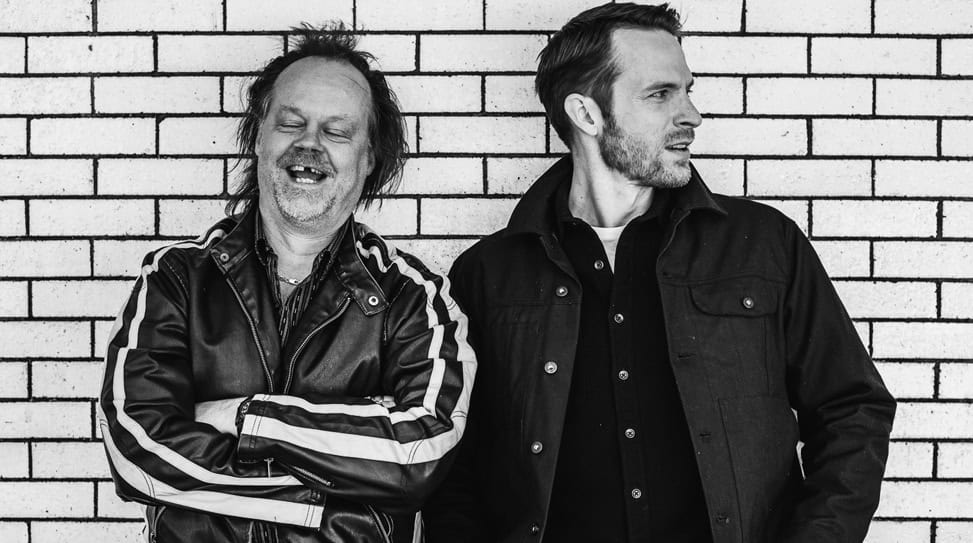

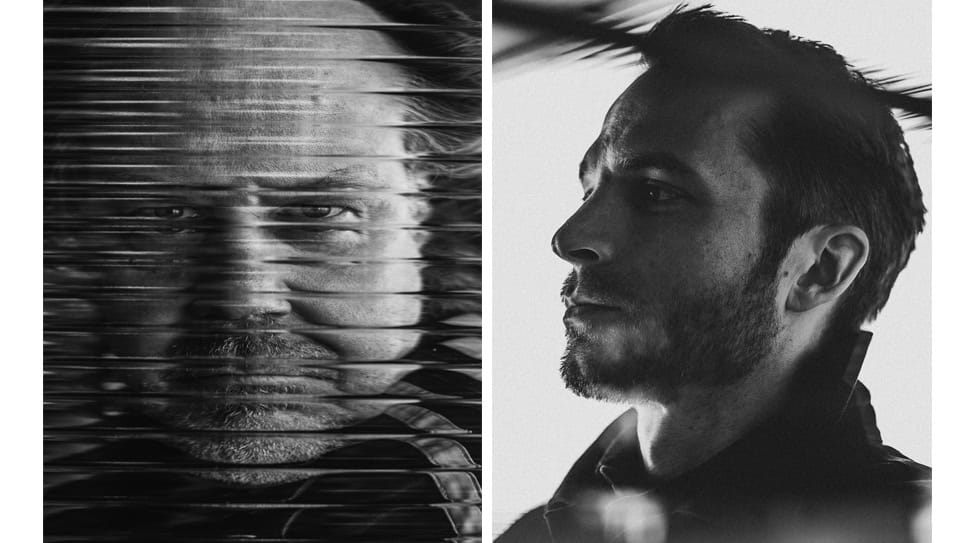
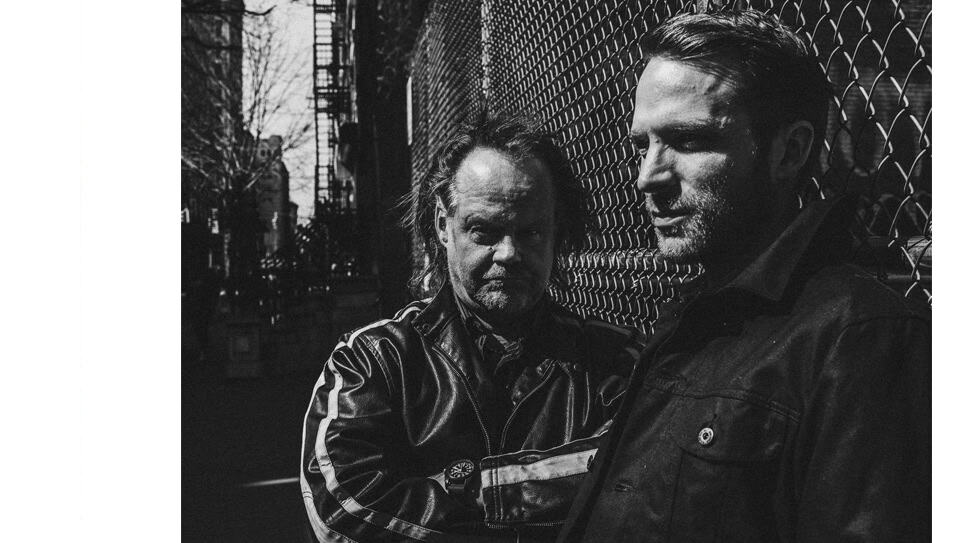
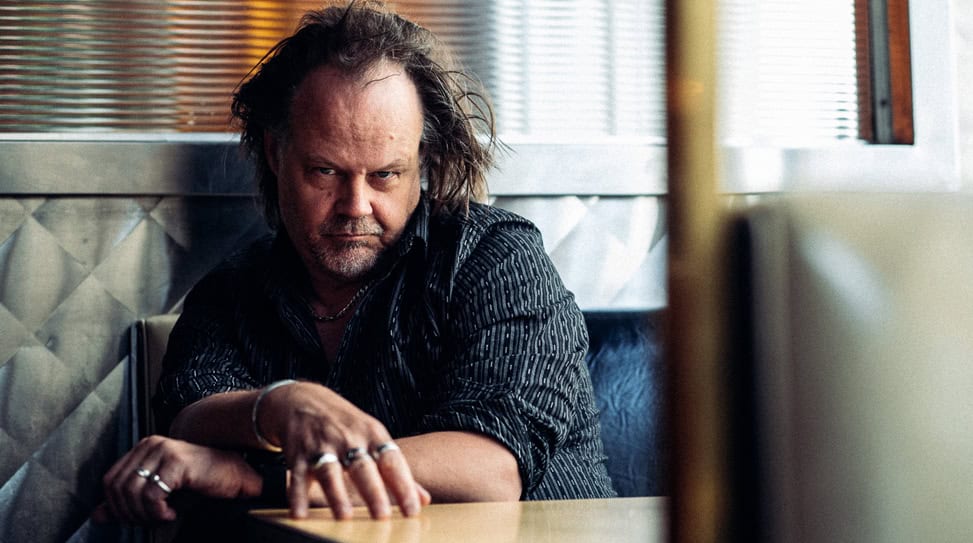
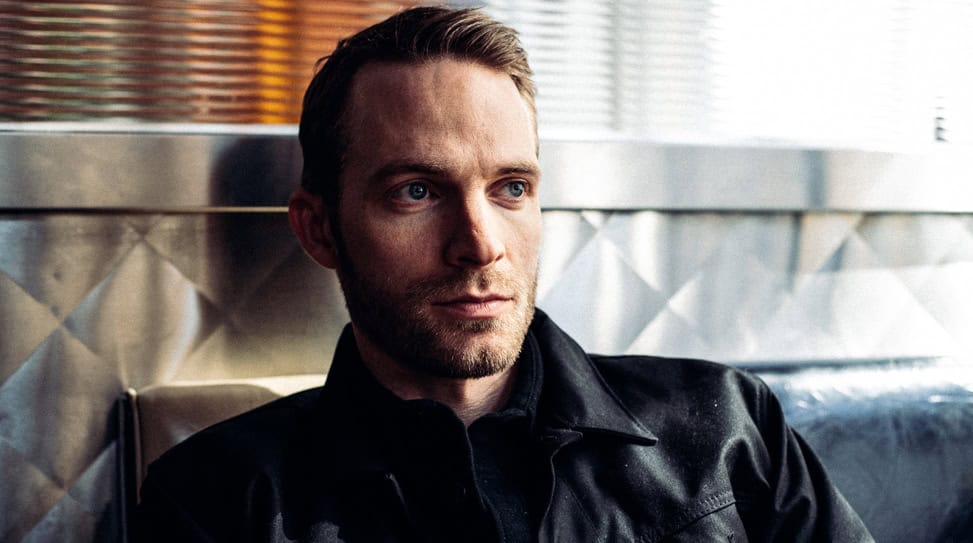
 A Conversation with Sean Wang
A Conversation with Sean Wang A Conversation with James Paxton
A Conversation with James Paxton
No Comments